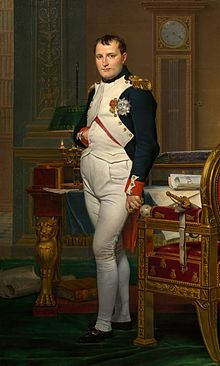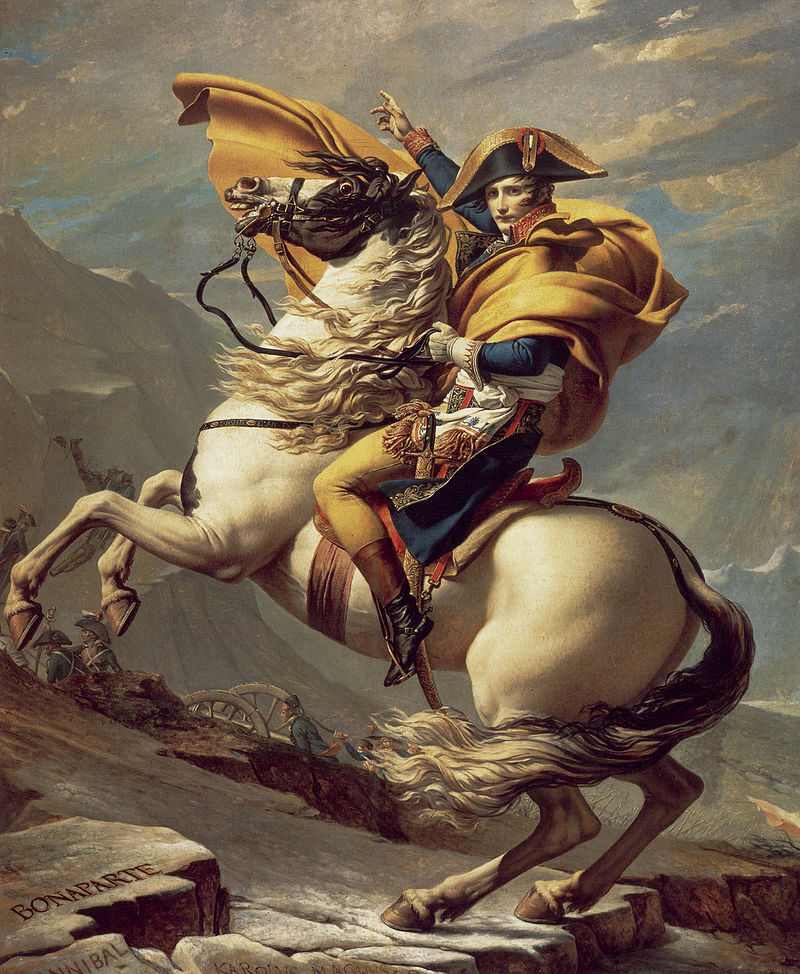Napoleon Bonaparte, also known as Napoleon I, was the first Emperor of the French. He was a military leader and general in the armies of the first French Republic, born of the French Revolution. As a general and head of state, he conquered much of Europe in the early 19th century, attempting to break the coalitions mounted and financed by the Kingdom of Great Britain. He led the French armies to numerous brilliant victories, giving him a degree of power rarely equaled in Europe at the time.
Considered a legend during his lifetime, Bonaparte owed his high profile to his military skill and astonishing political career, but also to his authoritarian, highly centralized regime. He reorganized and reformed the state and society in a lasting way, and brought French territory to its maximum expansion in 1812. After several setbacks, he lost the support of large sections of the French nation, while some of his former allies and vassals turned against him. The capture of Paris forced him to withdraw, but he still managed to regain power in his Hundred Days campaign. The Napoleonic Empire came to an end with the heavy defeat at Waterloo, which ensured the restoration of the Bourbon dynasty.
A romantic tradition made Napoleon the archetype of the great man destined to turn the world upside down. In this sense, several authors and novelists dubbed him the “prophet of modern times” or “Napoleon the Great”. The 19th century also saw the emergence of Bonapartism, a French political movement based on Napoleon's mode of government.


-
1769: Napoleon I is born on August 15 in Ajaccio, Corsica.
-
1795: Playing an important role in suppressing the Royalist uprising, he is appointed commander of the Army of Italy.
-
1799: He came to power with the coup d'état of 18 Brumaire and was First Consul until August 2, 1802, then Consul for life until May 18, 1804.
-
1802-1805: President of the Italian Republic.
-
1805-1814: Napoleon Bonaparte is King of Italy.
-
1803-1813: Mediator of the Swiss Confederation.
-
1806-1813: Protector of the Confederation of the Rhine.
-
1804-1814: Napoleon Bonaparte is the first French emperor.
-
1812: He increased the maximum extension of French territory to 134 departments.
-
1814-1815: forced to abdicate after the capture of Paris, capital of the French Empire, and withdraw to Elba, he attempts to regain power in France during the Hundred Days campaign.
-
1821: Interned on St. Helena, he dies of stomach cancer on May 5.
-
1840: His ashes are brought back to France and laid to rest at the Hôtel des Invalides (house of invalids).